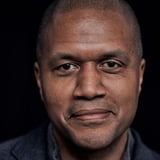Summary
In this talk, the speaker draws on his extensive executive coaching and product leadership experience, including his time at All Clear ID, to highlight prioritization as a fundamental tool for innovation and effective decision-making in complex environments. He introduces the concept of prioritizing across horizon one (day-to-day business), horizon two (foundation for future growth), and horizon three (long-term innovation), explaining how balancing these enables organizations to scale without losing sight of transformational opportunities. He shares how he created a visual, iterative prioritization framework at All Clear ID by engaging stakeholders like Maria and Dennis Allison to cluster priorities into technical debt, feature development, process improvements, and innovation. Using this approach, the company secured crucial investment to rebuild organizational capabilities and scale sustainably. The speaker also offers practical advice for managing emotion at work and stresses that clear, optimistic communication and stakeholder alignment are vital for success.
Key Insights
-
•
Prioritization drives everything in innovation and organizational success, guiding what gets attention and resources.
-
•
Innovations vary from big eye changes like elevators to small eye improvements like nail clippers, each with systemic impact.
-
•
Viewing problems as design challenges helps tailor strategies according to their scope and solvability.
-
•
Balancing urgent and important tasks with important but not urgent long-term investments is critical.
-
•
The horizon model (1,2,3) helps organizations separate current operations, foundation building, and future innovation.
-
•
Iterative stakeholder engagement is essential to build a shared prioritization framework that reflects multiple perspectives.
-
•
Breaking priorities into clusters such as technical debt, defects, new features, and process automation clarifies focus areas.
-
•
Prioritization frameworks enable transparent reasoning behind choices, facilitating alignment and investment support.
-
•
Organizational scaling requires removing barriers and investing across horizons simultaneously to sustain growth.
-
•
Leadership attitude—being blunt yet optimistic—drives confidence and followership during transformational change.
Notable Quotes
"If we could do everything that was important, we would just do it."
"Priorities don't necessarily need to be in a list but even unspoken priorities drive the work that's getting done."
"I’ve become a subversive designer because I’m now considered a product leader using prioritization at the organizational level."
"The urgent and important stuff competes with the important but not urgent, and we have to sort that out."
"We talked to fifty people and started to see how the world was shaping up in terms of what we needed to do."
"You have to choose what you’re going to do in order to win—and implicitly what you’re not going to do."
"Horizon one investments are about running the business today, horizon two about reinforcing growth, horizon three about long-term bets."
"People will not sabotage what’s going on if they feel like they’ve been part of the process."
"Be blunt with people but be optimistic—your attitude is going to be the thing that drives success."
"We got the board to write a check bigger than they’d ever spent because we had clarity on priorities and investment needs."
Or choose a question:
















More Videos

"You could never do all this marketing alone—it’s all hands on deck, relying on different strengths and creativity across the team."
Molly FargotsteinMultipurpose Communication & UX Research Marketing
September 12, 2019

"Different activities have different appropriate cadences; not every task fits into a one or two-week sprint."
Dave MaloufClosing Keynote: Amplify. Not Optimize.
October 24, 2019

"I think of AI models as amanuenses, like super secretaries aiding scholars in the early modern period."
Jorge ArangoAI as Thought Partner: How to Use LLMs to Transform Your Notes (3rd of 3 seminars)
May 3, 2024

"The AI is looking through material and that material’s changing every day."
Daniel J. RosenbergDesigning with and for Artificial Intelligence
August 11, 2022

"Small incremental changes are better than no changes at all from both the process and technical view."
Alexis LucioScaling Accessibility Through Design Systems
June 9, 2022

"I reported to a head of product excellence, not the head of design, so I could say no to requests from design leadership with backing from my manager."
Peter BoersmaHow to Define and Maintain a DesignOps Roadmap
October 3, 2023

"Making the invisible visible makes things move forward and create alignments."
Ben Reason Aline Horta Majid Iqbal Fabiano LeoniMaking the system visible: The fastest path to better decisions
November 20, 2025

"Chatbots aren’t just the language model—they have structure around intent classification, safety checks, and session memory simulation."
Peter Van Dijck Louis RosenfeldCoffee with Lou #4: Taking a Peek Under the Rosenbot's Hood
June 14, 2024

"Our truth is no longer singular; transparency and comprehensive storytelling are more important than ever in research."
Taylor KlassmanShaping the Next Era of UX Research: Collaborative Forum
March 11, 2025
















